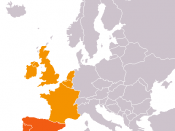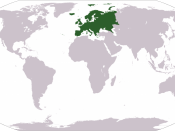I. INTRODUCTION
Gerber, a U.S company producing jarred baby food, was considering in 1991 whether they should acquire Alima SA, one of Poland's largest and most successful food processing plants. With this deal, Gerber expected to build a low-cost base for its European operation as a platform for growing markets of Central and Eastern Europe.
Because the deal could help to have the aging plant modernized and boost its sagging export trade while bringing hard currency at the same time, Poland government was happy to close the deal.
On October 1st,1991, Gerber signed a Purchase and Sale agreement in which the company committed to work with the Poland government in resolving problems such as property ownership and taxation. However, after this agreement, Poland's politics changed and Gerber faced threats from the new government that they would unable to deliver the promises made previously on October. Although most conditions of the deal were attractive to Gerber, it must reevaluate the merits of investing in Poland under such an uncertain situation.
II. BACKGROUND
1. Gerber Products Company
Founded in 1928, Gerber was located in a small town of Fremont, Michigan. It has a large variety of jarred baby foods with about 165 products. Besides, the company also makes basic baby apparel under its own product name and children's wear under Buster Brown label.
Fruits and vegetables used in production are grown within Fremont, and there is a glass manufacturer providing glass for baby foods' jars.
Gerber's philosophy is "providing a child with nutritional food, doing everything we can to deserve and maintain the confidence mothers have in our products."
In 1991, Gerber's market share in U.S was 72%, its main competitors--Heinz and Beech-nut shared the rest. At that time there was only 4% of U.S houses that have babies and Gerber reached...


